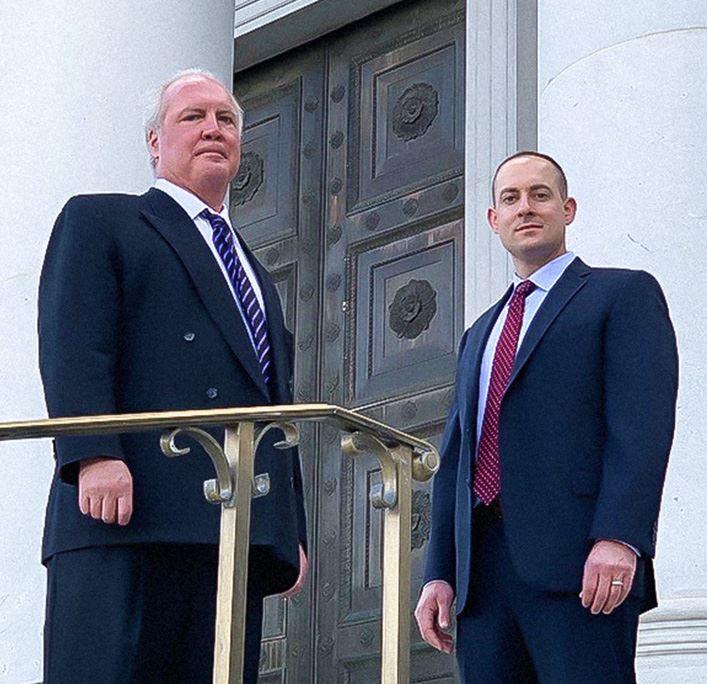
Denver Vehicular Manslaughter Defense Lawyers
What is the Average Sentence for Vehicular Manslaughter in Colorado?
Sometimes very unfortunate things happen and a person’s death due to a vehicle accident is one of the worse. If you were deemed responsible for the accident, you may be facing a vehicular manslaughter charge.
The consequences of a vehicular manslaughter conviction in Denver vary depending on the level of the charge:
- For a Misdemeanor, where alcohol or drugs were not involved, the penalties are 1 year in jail maximum or a fine.
- For a Class 4 Felony, where alcohol or drugs were not involved, the penalties are between 2 and 6 years in prison along with fines.
- For a Class 3 Felony, where alcohol or drug impairment were involved, you can face 4 to 12 years in prison along with larger fines.
- If the judge finds extraordinary aggravating circumstances in either level, the penalties could double.
Penalties for Vehicular Manslaughter
In Colorado, prosecutors are aggressive in pursuing these cases. You may be facing a Class 4 or a Class 3 Felony, depending on whether drugs or alcohol were involved in the accident. If the court finds extraordinary aggravating circumstances, the penalties can double in severity.
In a case this serious, you need a Denver vehicular manslaughter attorney who can help you carry the burden. The person killed may have been a friend or relative, and the emotions can be heavy. At the same time, you need vigorous criminal defense representation to protect your freedom and your financial future.
Choose Fife Luneau, P.C. for your vehicular manslaughter case in Colorado. We have over 30 years of combined experience and we dedicate ourselves to protecting the rights of the accused.
A conviction for vehicular manslaughter can change your life forever. Get forceful defense from our Denver vehicular homicide lawyers. Contact us at (720) 408-7130 for a FREE consultation.

-
 Acquitted of All Charges DUI Acquittal
Acquitted of All Charges DUI Acquittal -
Dismissed DUI, DWAI, Careless Driving
-
Dismissed DUI, DWAI
-
Dismissed Driver’s License Interlock Violation Hearing
-
 Dismissed Attempted Murder, Assault, Menacing with a Deadly Weapon, Distribution of Marijuana
Dismissed Attempted Murder, Assault, Menacing with a Deadly Weapon, Distribution of Marijuana
BECAUSE RESULTS MATTER
Recent Case Victories
Fife Luneau, P.C. is one of the most respected law firms when it comes to DUI and criminal defense cases. We have a remarkable track record up and down the Front Range, successfully handling some of the most complex cases.
- DUI Acquittal
- DUI, DWAI, Careless Driving
- DUI, DWAI
- Driver’s License Interlock Violation Hearing
- Attempted Murder, Assault, Menacing with a Deadly Weapon, Distribution of Marijuana


Have Questions?
-
How should I choose a Denver criminal defense attorney?First and foremost, your lawyer should be confident and knowledgeable in their practice. You should always feel comfortable with discussing the details of your situation and your freedom and your rights should be your counsel’s top priority. At Fife Luneau, P.C., our team has a true passion for what we do, and our experience and zealous advocacy is a testament to this. We have a proven track record for results and will always fight for your best interest.
-
How much are your legal fees?Fife Luneau, P.C. handles cases on an upfront flat-fee schedule that is determined based on how severe your charges, how complex the case, and whether you need to go to trial. We will discuss all issues with you beforehand, and once you agree to our fees, we’ll hold your money in a trust on your behalf. This way we can focus on your matter and not on money. Our firm also accepts all major credit cards.
-
After an arrest, what are my rights?Every U.S. citizen is granted certain rights by the Constitution. These include the face that you are innocent until proven guilty, and that burden is put on the prosecution. After you have been charged, you have the right to a public trial, skilled counsel of your choosing or a court-appointed lawyer, if needed, the right to remain silent to protect yourself from incrimination, the right to cross-examine the accused, the right to testify, or not, and the right to an appeal.

